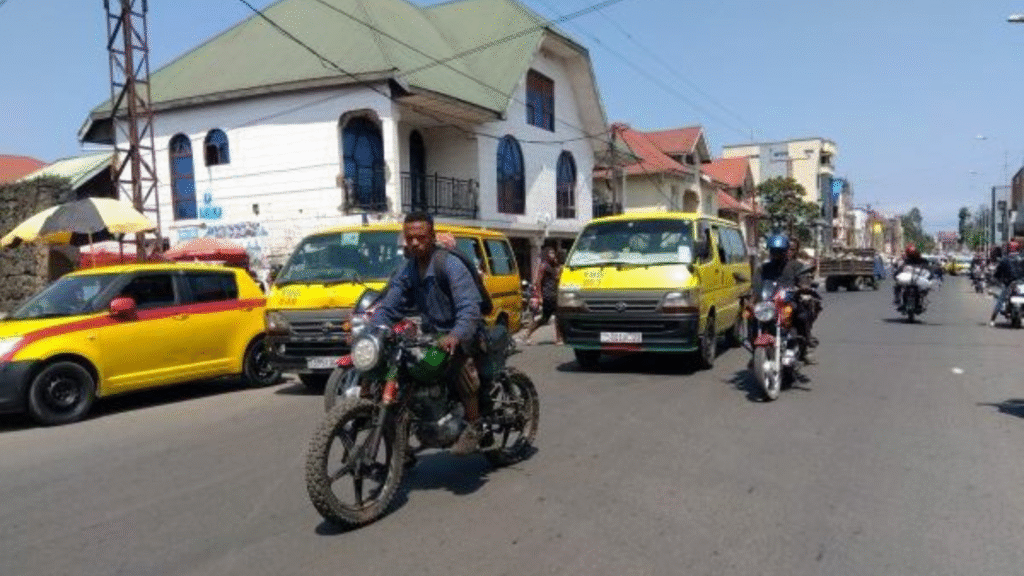
This article, authored by Victoire Katembo Mbut, was initially published on the news platform Ici Congo on May 4, 2025.
Since January 2025, the M23 rebels have taken control of Goma, a city located in the eastern Democratic Republic of the Congo (DRC). With violence casting a shadow over daily life, apprehensions and uncertainties about the future are escalating.
On Wednesday, April 23, 2025, as light rain fell in Goma, the slum area of Birere was eerily quiet. The streets, once filled with vendors, motorcycle taxis, Chukudus (handmade two-wheeled scooters), commercial traders, Shegués (street children), and pickpockets, now lie in a dismal state, nearly abandoned and silent.
Jean-Paul Sengemoja (a pseudonym for security reasons), a shopkeeper in Birere, vividly remembers the day the M23 rebels entered Goma. He shares his thoughts:
“This situation has disrupted every facet of our lives. We have lost friends and possessions, and our businesses have been ransacked. It feels like a nightmare that has come to life.”
When the M23 rebels took over Goma, numerous stores were plundered. He added:
“Our revenues have significantly declined. Prior to this conflict, our daily earnings ranged from USD 2,000 to USD 5,000. Now, we struggle to make between USD 300 and USD 500. Our work has nearly come to a halt.
” Hotels and bars are functioning at minimal capacity or not at all. While there is a facade of normalcy during daylight hours, the streets become deserted after 7 pm. Nevertheless, upon taking control of the city, the M23 leaders promised unrestricted movement for residents around the clock. A local, rushing home, expressed:
“It’s a fear that we ourselves can’t articulate.”
Strangers in their own homeland
Every morning, Goma verifies the casualty count. The bodies are found in the streets at dawn. Not a single night passes without reports of homes being attacked, fatalities, thefts, or disappearances. No one can definitively explain the circumstances surrounding the nightly murders or identify those responsible. Amidst armed banditry, violence, and the presence of gunmen, citizens have been stripped of public institutions. The judicial system, police, and other public authorities have been dismantled, leaving people in a constant state of fear.
The presence of military personnel, whether during the day or at night, instills fear in the public, particularly among the youth. John Alimasi, 18, shared with Ici Congo that he harbors a profound fear of military vehicles after narrowly escaping forced recruitment.
“One Thursday, I managed to evade forced recruitment along with some other guys from my neighborhood. Whenever I spot a military jeep, I feel a sense of unease. I’m perpetually afraid and feel like a foreigner in my own land.”
A sense of despair is enveloping the population. Each day seems more challenging and prolonged than the last. With banks and other financial institutions closed, families are struggling to make ends meet. A local NGO worker, who is unemployed due to the conflict, expressed his concerns:
“Even though we have money in the bank, we’re facing starvation. We have no idea how to access healthcare without cash. We’re resorting to self-medication at home. Everything has shifted. Goods have skyrocketed in price, and the instability of the exchange rate has made survival difficult.”
In both media and public forums, individuals have grown increasingly hesitant to voice their opinions about the current state of affairs in their city. Safi, a seller of manufactured goods, remarked: “We hear about people being beaten and killed constantly. Others are coerced into joining the M23 armed group. We are aware of all this, but we lack sufficient evidence. Nowadays, I fear the messages circulating on social media. We risk nothing by choosing to remain silent.
Economic downturn
Across the Democratic Republic of the Congo, the economy is facing significant challenges. The motorcycle taxi and Chukudu sectors are finding it hard to survive. Jonas, a Chukudu driver, remarked:
“Currently, I hardly earn between CDF 2,000 and 5,000 (USD 0.68 and 1.70). It’s become increasingly tough to find customers.”
At a cafe along the Goma-Sake road in the Lac Vert area, west of Goma, Archange (a pseudonym) reflected on the future of the situation.
“How much longer do we need to endure this predicament?”
In the Kyeshero district, Mwasi, a market vendor, sits in front of her stall, expressing her deep anxiety and fatigue. Since the arrival of the M23 rebels in Goma, she has struggled to get any rest. The persistent insecurity has taken a toll on her well-being:
“I can hardly sleep at all. Even when I’m in bed, I can’t stop worrying about possible attacks.”
She is not alone in Goma; many others are also experiencing restless nights.
Increased post-traumatic stress disorder (PTSD)
On February 18, 2025, the International Committee of the Red Cross issued a press release stating that the facilities it supports have documented over 1,400 deaths this year, primarily among civilians — a figure that is ten times higher than the casualties recorded in 2024. The briefing emphasizes:
“Numerous families have been torn apart in the chaos as they fled and are now anxiously waiting for news from their loved ones with whom they have lost contact. It is crucial to establish communication channels to allow them to reach out to their family members.”
Clinical psychologist Dieudonné Bahati notes that many individuals in Goma have experienced depression since the conflict has reignited. He explains that conflict can lead to post-traumatic stress disorder, intensifying feelings of despair and resulting in issues with sleep and appetite. Dieudonné Bahati recommends:
“It is essential to live in harmony to support one another. If something troubles you, confide in someone you trust.”
Such circumstances can lead to suicidal ideation in some individuals. Many have lost everything, and those who were employed are now without work.
Similarly, Jean-Marie Vianney Basabose, a neuropsychiatrist at the mental health facility Tulizo Letu (Our Comfort) in Goma, elaborates:
“The experiences endured by the people of Goma have left a psychological mark. Numerous individuals are suffering from post-traumatic stress disorder, and there is also a notable increase in depression cases, particularly among children.”
To this day, diplomatic initiatives have not succeeded in restoring peace in Goma, leaving the local population with little hope as they navigate this ongoing conflict.
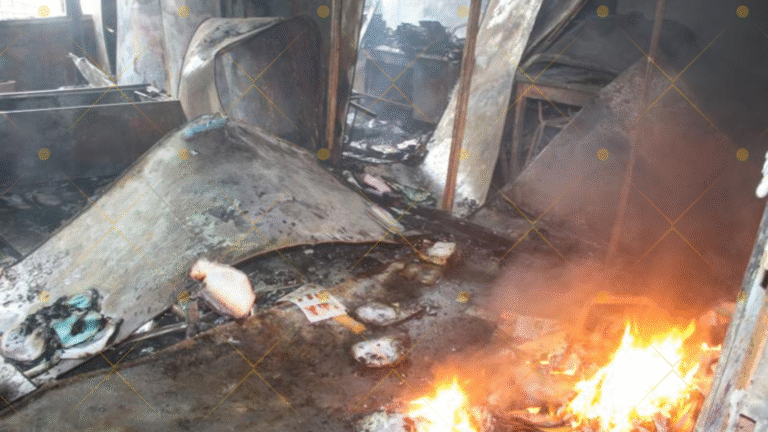
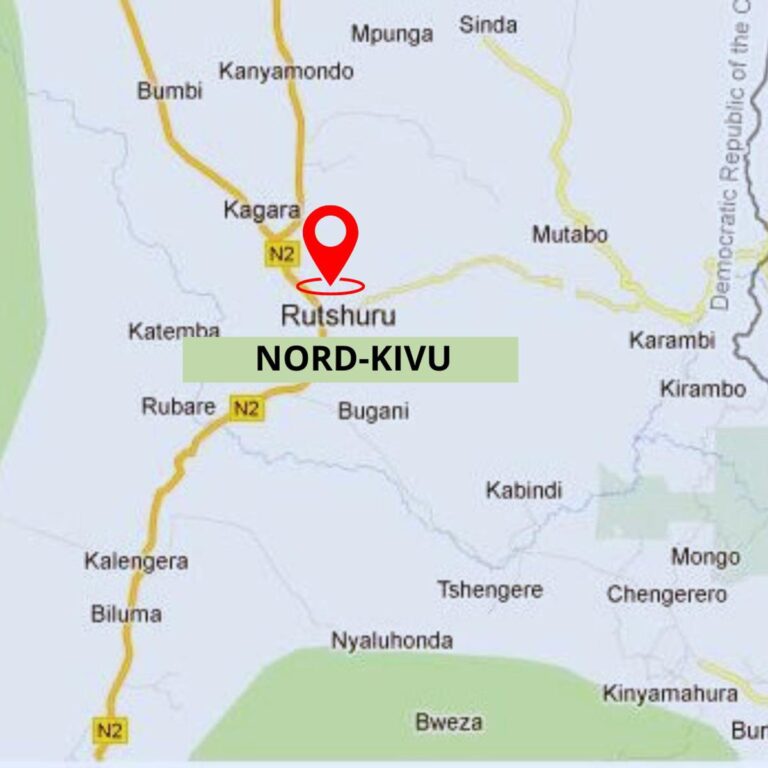
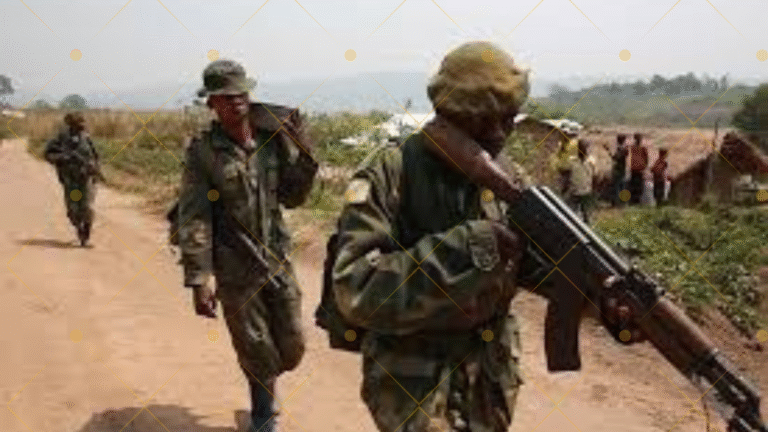
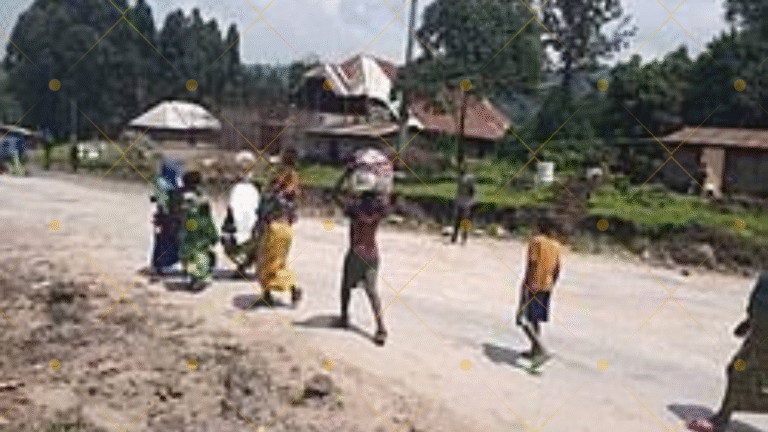
Freecongo 🇨🇩🙏🏾